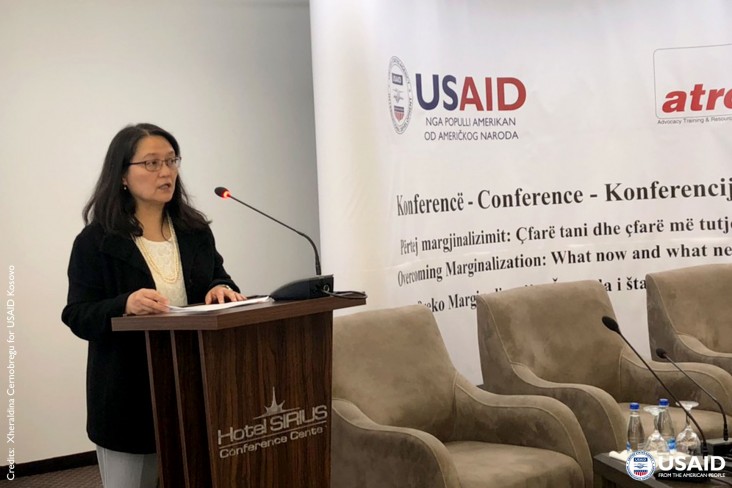Speeches Shim

Thank you, Kushtrim, and thanks to everyone for joining us today to address how we can work together to help all of Kosovo’s citizens access equal rights and protections under the law.
So much of the work that USAID does revolves around partnerships, because when people come together, they can achieve great things. In the words of Helen Keller, an American political activist and advocate for people with disabilities, “Alone we can do so little; together we can do so much."
Most recently, you have done just that. Example 1: You proved how a coalition of CSOs can come together and make their voices heard to make sure that the Law on the Freedom of Association of Non-Governmental Organizations reflects best practices and the inclusion of stakeholders. . We know that fight isn’t over as the draft law is still in the Assembly. This law must be a step forward, and not allow space for backsliding and corruption, especially at the cost of social causes for everyday Kosovo citizens.
Example 2: Along with Reinvest, you established the Women’s Economic Forum. This created a channel to advocate for women’s economic empowerment in the National Council for Economic Development of Kosovo led by Prime Minister`s office.
Examples 3 and 4: CSOs, such as BIRN and ACDC, have worked together to make sure that women’s property rights was no longer a taboo subject in Kosovo; and CSOs like Handikos Pristina, Down Syndrome Kosova, Association of Blind People and Klubi Deshira, have come together to jointly draft and advocate for a new Law for People with Disabilities.
I can go on with more examples but I think that you see the point I am making with the Helen Keller quote. It is undeniable that your voice is louder and you are stronger when you all work together.
So be proud of the work you do. Be persistent but patient. Oppose as loud as you can but be equally vocal about solutions to propose. The road ahead is still full of challenges and impediments for marginalized communities in Kosovo. Laws, even when perfectly crafted, are meaningless if they do not translate into genuine exercise of an individual’s rights.
Persons with disabilities, and members of the LGTBI community, are still struggling to attain and exercise their rights. Women in Kosovo are victims of domestic abuse because of economic dependency. The labor participation rate of women in Kosovo at 20% is shockingly atrocious. Young people must have their political voices heard, and their desire to attain meaningful employment realized to help them provide valuable contributions to Kosovo’s society.
By not implementing the laws and policies in place, stakeholders, including the government and civil society are falling short in fully respecting the human rights of all Kosovo’s citizens. And citizens as well have a role to play. Citizens need to be part of the change. Demand accountability. There is a long road ahead of us. But the good news is that the solutions are in this room, among all of us. Civil society, local governments, and national ministries, in particular, need to work together to ensure that good ideas are heard and that policies are adopted.
We serve the people whom we represent. It’s not the other way around. And by people, I mean all people, not just a select few. So whether you work in a national ministry, independent agency, or a municipality or NGO – be it North Mitrovica, Gracanica, Peja or Prizren – serve each and every constituent. As Kosovo moves forward, let’s make sure that no one is left behind.

Comment
Make a general inquiry or suggest an improvement.